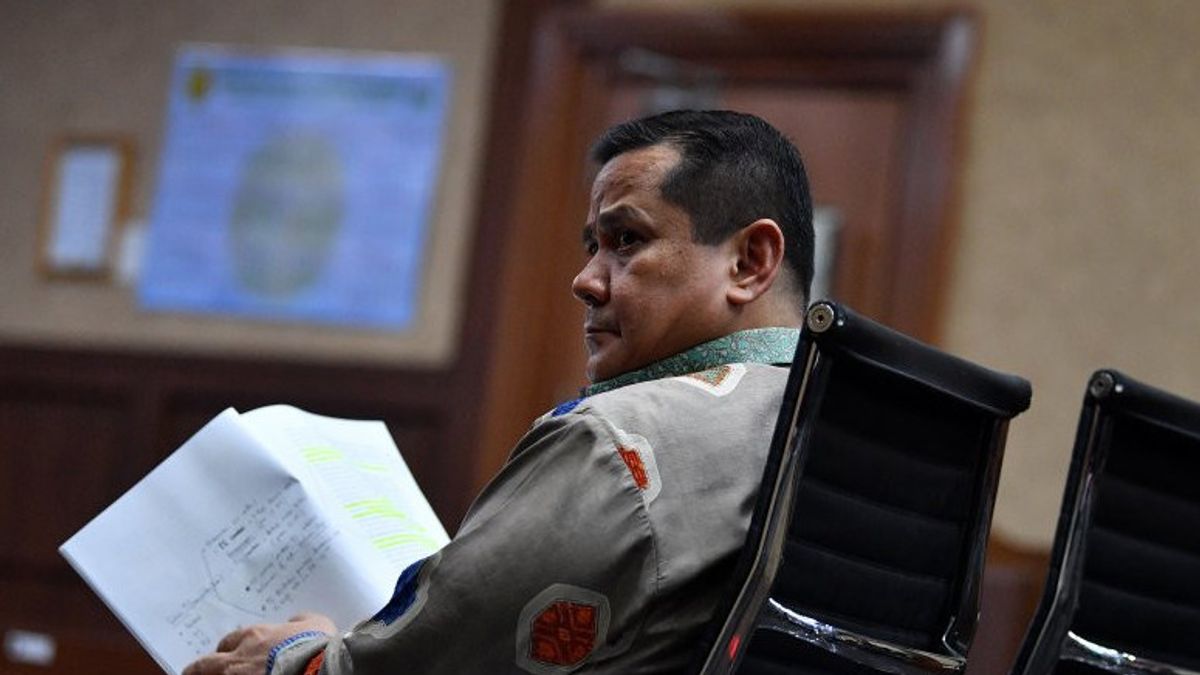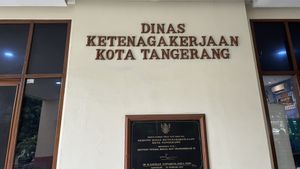The National Police Commission (Kompolnas) respects the decision of the National Police's Professional Code of Ethics Commission (KKEP) session, which imposed administrative sanctions in the form of a three-year four-month demonstration against the convict in the corruption case of Inspector General Pol. Napoleon Bonaparte.
However, Kompolnasakan reviewed, studied, and analyzed the decision in order to accommodate the aspirations of the community who questioned why the National Police did not impose sanctions for dishonorable dismissal (PTDH) to the authorities involved in corruption.
"Kompolnas memahami keharapan publik dalam perkara pidana tipikor IJP Napoleon Bonaparte telah mendapat putusan hukum yang berkekuatan tetap; tentunya dengan logic akan diberi sanksi PTDH,"kata Anggota Kompolnas Yusuf Warsyim dilansir ANTARA, Kamis, 31 Agustus.
In the National Police's KKEP trial against Napoleon Bonaparte, Kompolnas followed the trial by watching, seeing, and listening to the facts and considerations of the KKEP Commission in deciding the quo case.
Despite respecting the KKEP decision, Yusuf as a member of Kompolnas provided notes and would study and analyze ethical decisions in the form of demotion sanctions.
"We will look at the facts and strength of consideration, both law and ethics, which demands and directs democratic sanctions, why not PTDH," said Yusuf.
In this effort, continued Yusuf, Kompolnas will see the power of philosophical and ethical considerations to impose a democratic sanction on Napoleon Bonaparte.
"Including me, as a member of Kompolnas, will also observe and collect public opinion on the ethical quo decision," said Yusuf.
Yusuf continued to determine the voice, opinion, and public response to the ethical decision.
"Kompolnas already has input and suggestions for the Police in the future. After all, Kompolnaskan has the authority to accept public suggestions and complaints," he explained.
The KKEPPolri trial against Napoleon Bonaparte took place on Monday (28/8) and imposed sanctions for ethical violations in the form of administrative transfers which were demotional for three years and four months.
Napoleon Bonaparta was declared to have violated the provisions of Article 13 paragraph (1) of Government Regulation (PP) Number 1 of 2003 concerning the Dismissal of Police Members in conjunction with Article 7 paragraph (1) letter b, Article 7 paragraph (1) letter c, Article 13 paragraph (1) letter e and Article 13 paragraph (2) letter a of the National Police Chief Regulation (Perkap) Number 14 of 2011 concerning the Police Professional Code of Ethics.
VOIR éGALEMENT:
Napoleon was proven to have committed a criminal act of corruption by issuing the abolition of Interpol RedNotice on behalf of Joko Soegiarto Tjandra (JST).
For his actions, based on the Supreme Court's inkrah decision, the former head of the National Police's Hubinter Division was sentenced to four years in prison.
In early August, Napoleon Bonaparte was officially released from prison after serving four years in prison for a money laundering case (TPPU) in the bribery case for the removal of Joko Tjandra's red notice.
Napoleon was proven to have received bribes from Joko Tjandra worth 200 thousand Singapore dollars or around Rp. 2.1 billion and US$ 370 thousand or around Rp. 5.1 billion.
The English, Chinese, Japanese, Arabic, and French versions are automatically generated by the AI. So there may still be inaccuracies in translating, please always see Indonesian as our main language. (system supported by DigitalSiber.id)














